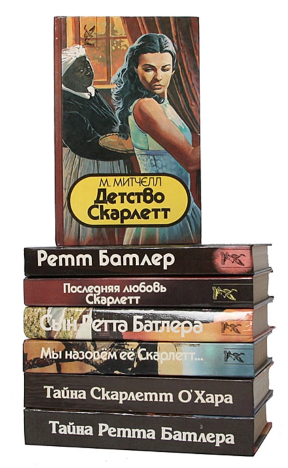Search Results
Search Terms
"Gone with the Wind"—The post-Soviet Sequels
A series of five collectively authored sequels to Margaret Mitchell's bestselling “Gone with the Wind” (1936). Writing in Minsk, Belarus, the anonymous authors published under the pseudonym Dzhuliia Khilpatrik (“Julia Hillpatrick”) and released titles like “We'll Call Her Scarlett,” “Rhett Butler's Son,” and “Scarlett's Last Love”
Perestroika-era Russian Women Speak to US Women
A clip from one of many perestroika-era televised conversations between American and Soviet "regular people," in which they find common ground with the help of longtime Soviet propagandist and future star of liberal post-Soviet TV, Vladimir Pozner (1934-).
Nautilus Pompilius perform “Last Letter (Good-bye America)” in 1988
This 1988 televised performance of Nautilus Pompilius's “Last Letter” captures the band’s cultural disillusionment with Western ideals, prefiguring post-Soviet anti-Americanism.
Soviet audiences devour the Brazilian soap opera "Escrava Isaura"
Stills from the first episode of the Brazilian soap opera "Escrava Isaura," which aired in Brazil in 1976-77 and in the USSR/ Russia in 1988-90. In this first episode, aired on Soviet Central Television on 16 October, 1988, it is revealed that the show's title character, Isaura, is not the niece of the wealthy Almeida family—but instead a "slave" with a “mulatto [sic]” mother and a Portuguese father.
An Encounter with America
This billboard advertising the cigarette brand L&M is positioned in front of the burned façade of the Russian White House, which was bombed on Yeltsin’s orders during the 1993 Constitutional Crisis. It possibly inspired one of the most famous passages from Victor Pelevin’s iconic satire of the 1990s, “Generation P” (titled, in English, “Homo Zapiens”).




